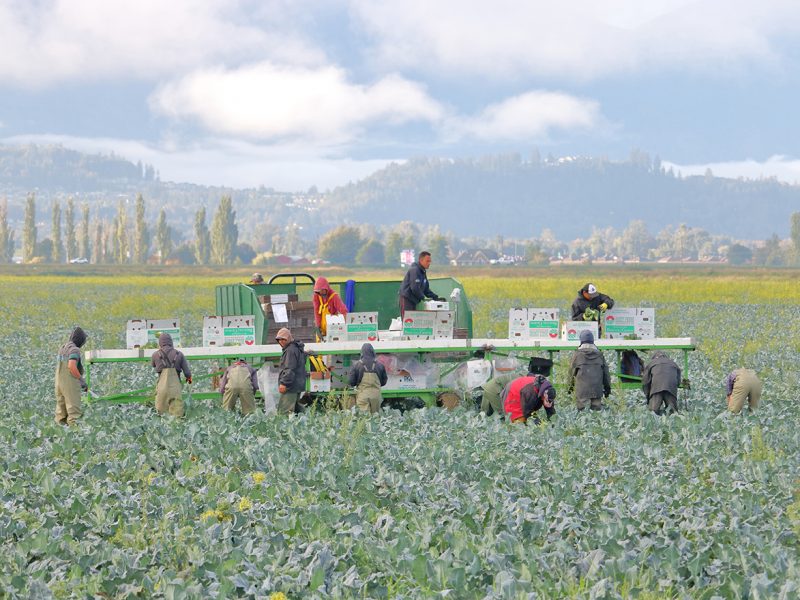BC’s minimum wage will rise June 1 in step with inflation, putting further strain on farm employers already struggling with high input costs and a labour crunch.
The provincial hourly minimum wage will rise 6.9% on June 1 to $16.75 an hour, making it the highest minimum wage of any province and the second-highest in Canada. Yukon is the only jurisdiction with a higher minimum wage, at $16.77 an hour.
Piece rates for 15 hand-harvested crops will also increase by 6.9%, with the change taking effect Jan. 1, 2024.
“Having a minimum wage that keeps up with inflation is a key step to prevent the lowest paid workers from falling behind,” says BC labour minister Harry Bains, noting that workers paid minimum wage the effects of inflation more than others.
According to a Statistics Canada report released in January, about 10% of BC workers receive minimum wage.
However, Statscan data indicate that many farm workers are being offered wages significantly above the existing minimum wage when they’re hired. During the last quarter of 2022, offered wages ranged from $16.90 an hour for farm workers in the Kootenays to $17.80 an hour on Vancouver Island.
While Lower Mainland farmers offer lower starting wages, data from last summer indicates an average of $16.20 an hour was being offered, well above the $15.65 minimum at the time.
This means growers in the Lower Mainland stand to take a significant hit on June 1.
Many foreign workers will also see a wage boost, as their wages must be the higher of either the minimum wage or the National Occupational Classification (NOC) rate for their sector. The rates begin at $16.05 an hour for the majority of roles, up to $17.67 for maple syrup workers.
But the upward pressure on wage rates also has its limits.
During a Centre for Organizational Governance in Agriculture webinar earlier this year regarding the impact of inflation on farming operations, one Lower Mainland producer said an effort to pay workers a so-called “Living Wage” – now in the range of $24 an hour in the Lower Mainland – collapsed because the numbers simply didn’t pencil out.
This is the second year that the annual minimum wage increase has been tied to inflation, a policy Bains says the province intends to continue. It also compounds a 50% lift in the province’s minimum wage since 2015, an increase more than double the rise in the Consumer Price Index during the period.
The increase disappointed a broad coalition of business groups, who wrote Premier David Eby last month asking the province to limit the increase to 3%.
According to the Canadian Federation of Independent Business, a small business with 10 minimum-wage workers faces an additional $20,000 a year in payroll costs.


 BC’s chief veterinarian highlights key animal diseases
BC’s chief veterinarian highlights key animal diseases